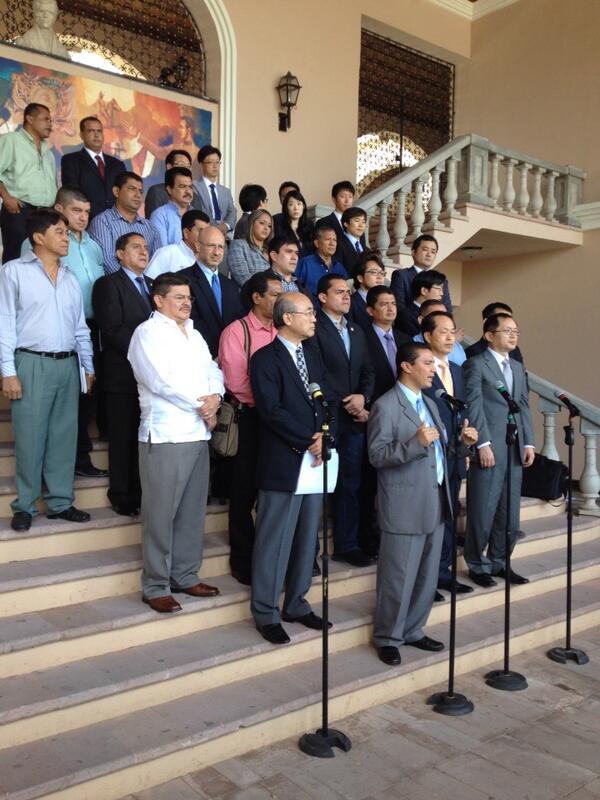EspañolOn Monday, Honduran President Juan Orlando Hernández announced the next steps towards the configuration of the first Zone for Employment and Economic Development (ZEDE) in the country. The first and leading options named for implementation, under assessment, are five municipalities in the small, southern department of Valle — in addition to the department of Choluteca, also in the south.
At noon, Hernández met in the presidential palace with South Korean Ambassador Kim Rai-Hyug, businessmen and members of the South Korea Cooperative, and government officials of Valle department. After the encounter, Hernández presented the official project for ZEDEs in Honduras (MP3, 16 minutes in Spanish).
Posco Plantec will take 10 months to finish the study and release the results. At that point, investors will make the final decision to build in the chosen municipality or municipalities in Valle and/or Choluteca.
According to Díaz, “after the study, we will proceed to create a master plan, with a detailed design, that will take into account all the environmental, population, and governance variables, as well as economic trade zone and cooperation considerations with the various companies that have participated in this joint effort — to promote investment in the south of the country.”
These areas with greater autonomy — in the startup city, LEAP zone mold — are poised to become centers of attraction for high flows of investment and employment due to their promise of dynamic, free-market, and competitive systems of governance. Further, Díaz stated that the project takes into account the development of the region’s port and shipping capacity [Amapala], and will “transform it into a development center, not only in the country but the rest of Latin America.”
The cabinet secretary also emphasized the Honduran participation in this development project. The government will supply technical support that will assist during the whole process. “This process will be an inclusive one; it will be neither invasive nor exclusionary.”
Former Military Chief of Staff René Osorio accepted his appointment as presidential commissioner for the ZEDEs.
“He will join this process to verify and assure that national sovereignty won’t be eroded at any time,” asserted Díaz.
Díaz also made clear that the ZEDEs will be more than a free trade zone: “it’s about creating a space that can compete worldwide, not offer cheap labor, but a framework of legal security for free trade zones that can attract foreign investment. This is why the ZEDEs are superior to free trade zones and other economic zones in other parts of the world.”
If successful, these zones would affirm the feasibility of startup cities for other parts of the country and elsewhere. In this regard, a blogger on startup cities and LEAP zones, Graham Brown, asserted that “this appears to be excellent news. Apart from the potential of the Valle project itself, the news shows the government’s will is behind the ZEDEs, and that many things are either in place or expected to be in place.”
 Versión Español
Versión Español













